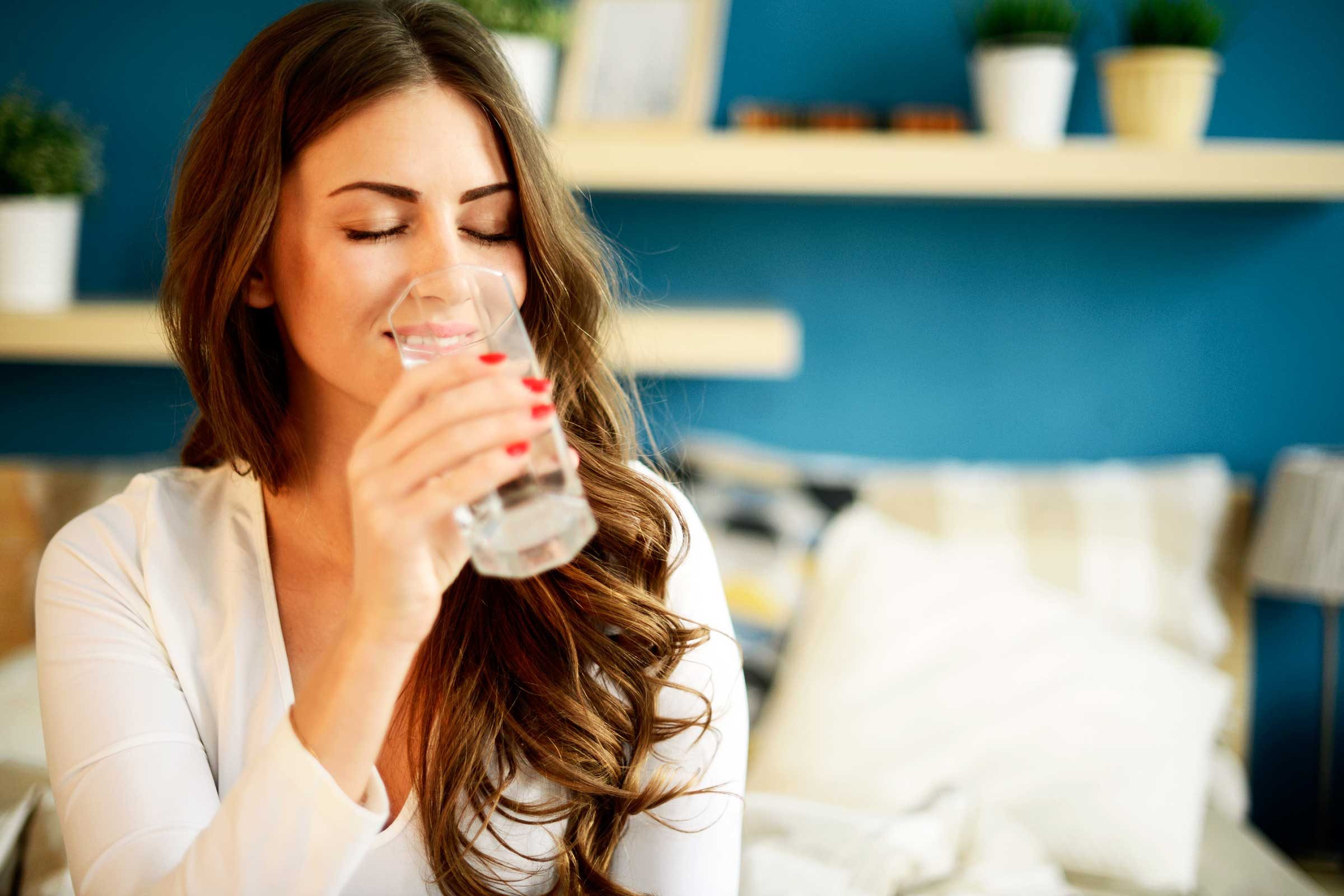
First of all, how much water should you be drinking?
You’ve heard before to aim to drink 8 glasses of water every day. That number is a handy guideline for the average person, but some people might need more or less. But there’s an easy way to figure out how much your body really needs. “When we talk about hydration, we have to talk about pee,” says Jen Bruning, spokeswoman for the Academy of Nutrition and Dietetics. “The best measure to know if you’re adequately hydrated is to look in the toilet.” If your urine is clear or very pale, congrats—you have good hydration. But if it’s a brighter yellow or amber color, you should probably be downing more water.
(Related: 23 Flavoured Water Recipes That Are Beyond Refreshing)
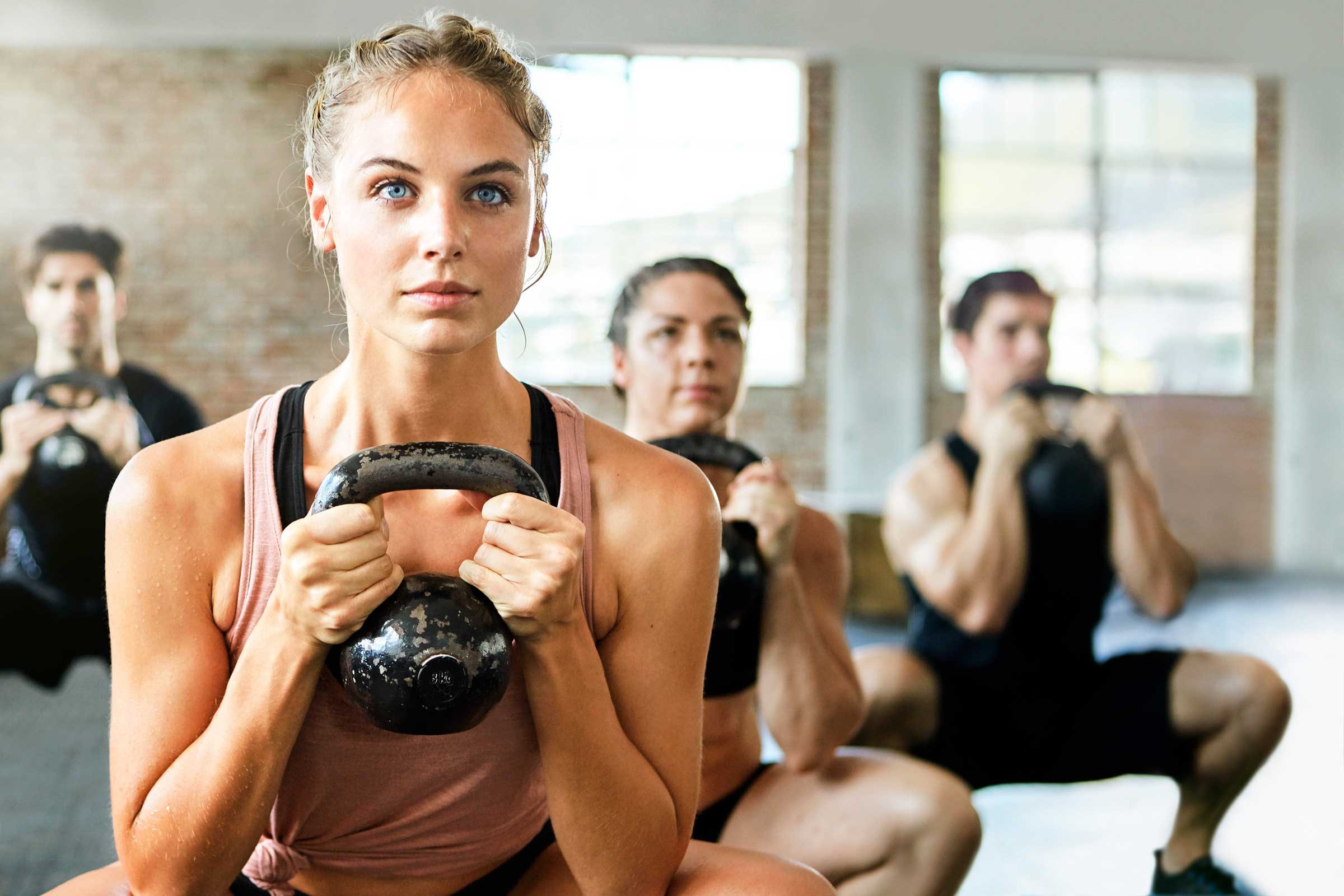
You’ll be able to stand a more vigorous workout
One of the many benefits of drinking water is that it will help with your workout. Muscles need a good balance of electrolytes like sodium, potassium, and magnesium to function properly. Without proper hydration, electrolytes can’t exchange as easily, and the muscles can lose plumpness and be more prone to cramping. “If you’re working on building muscle, you won’t get that intensity if you’re not hydrated because the muscles are demanding water,” says Bruning. Drink eight ounces of water before physical activity to stay hydrated. You probably don’t need to carry a water bottle during a light or moderate workout, but you should have water or a sports drink on hand for vigorous activity or when you’re exercising in the heat, says Bruning.
(Related: Drinking This Many Glasses of Water a Day Will Boost Your Weight Loss)
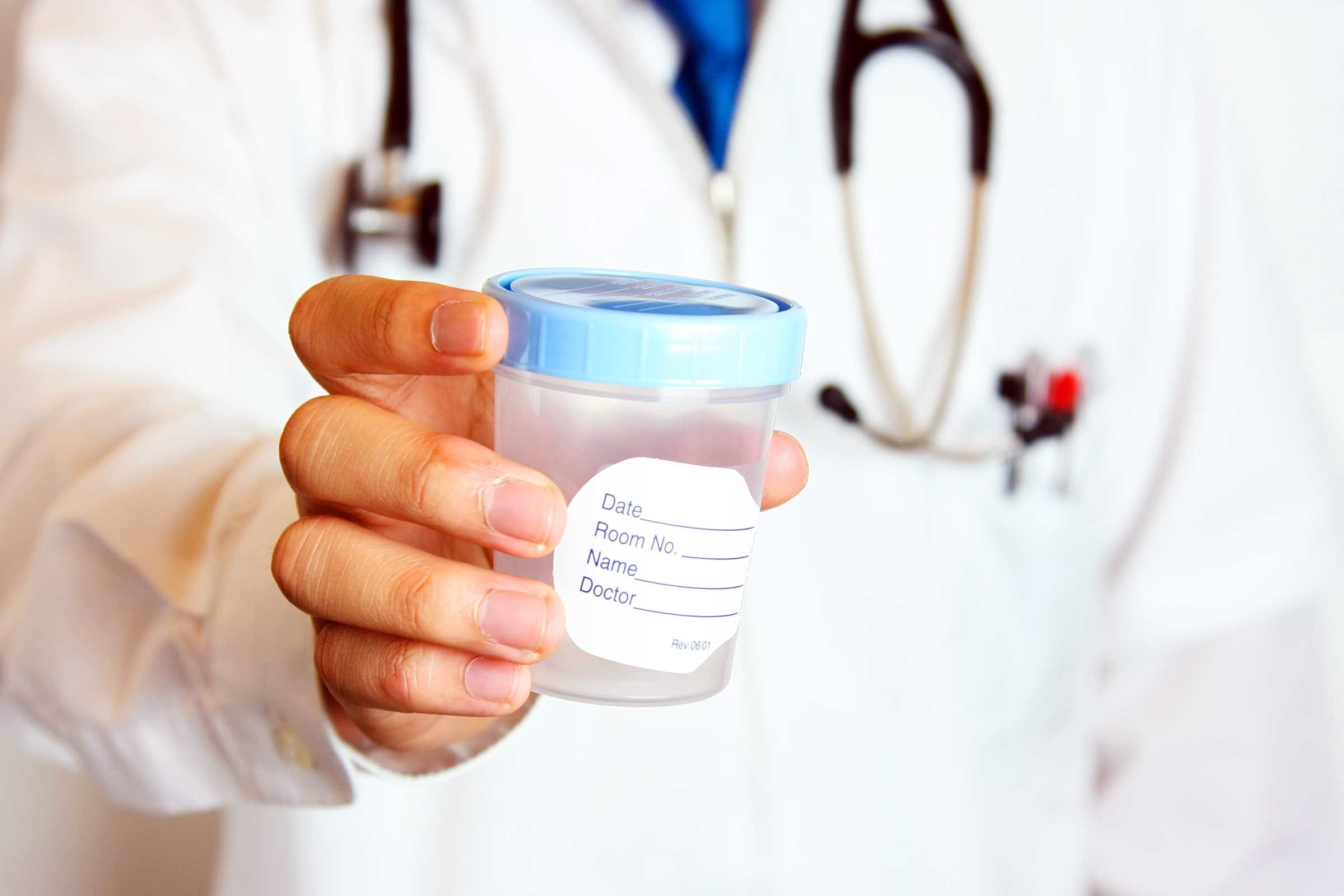
Your kidneys will function better
Kidneys flush waste from your body in the form of liquids and they need sufficient water to do that. If you’re chronically dehydrated, it could be harder for kidneys to do their job, and a blood urea nitrogen test could show you if they’re not functioning properly, says Bruning. Plus, without needing regular bathroom visits, a hard mineral could form and cause kidney stones, says Kelly Pritchett, spokesperson for the Academy of Nutrition and Dietetics. “When urine production is low, the kidneys are forced to concentrate the urine, meaning a heavy concentration of minerals,” she says.
(Related: 17 Secret Signs You’re Dehydrated)
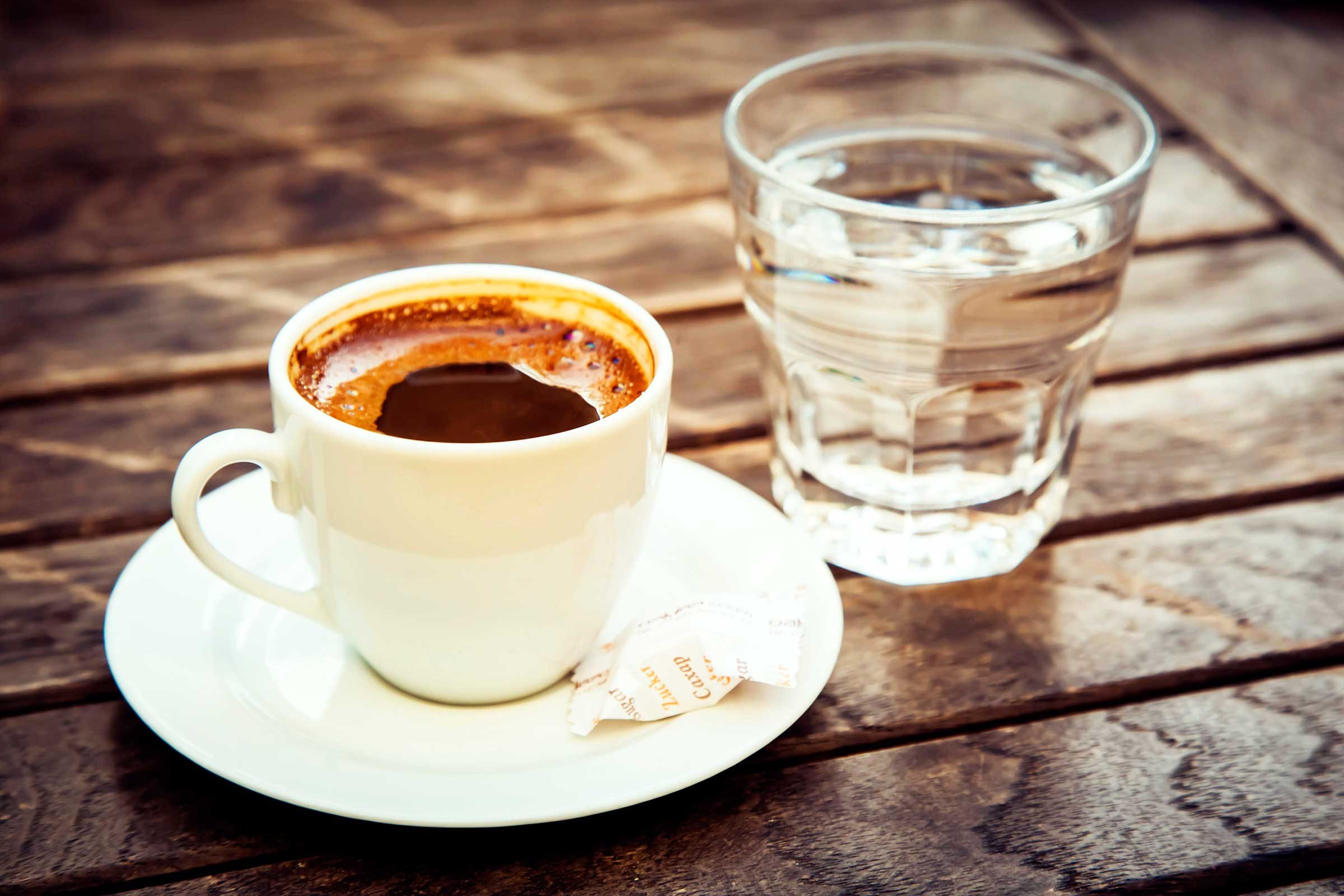
You’ll get an energy boost
Many people don’t realize that one of the benefits of drinking water is that it helps you energy levels. Your body needs water to keep up its energy levels, which is why you might feel sluggish if you aren’t drinking enough water every day. “Some people turn to caffeine because they think they’re always tired, but something like caffeine won’t necessarily have beneficial effects on energy levels if they’re not hydrated as well,” says Bruning.
(Related: 8 Best Stainless Steel Water Bottles for Staying Hydrated)
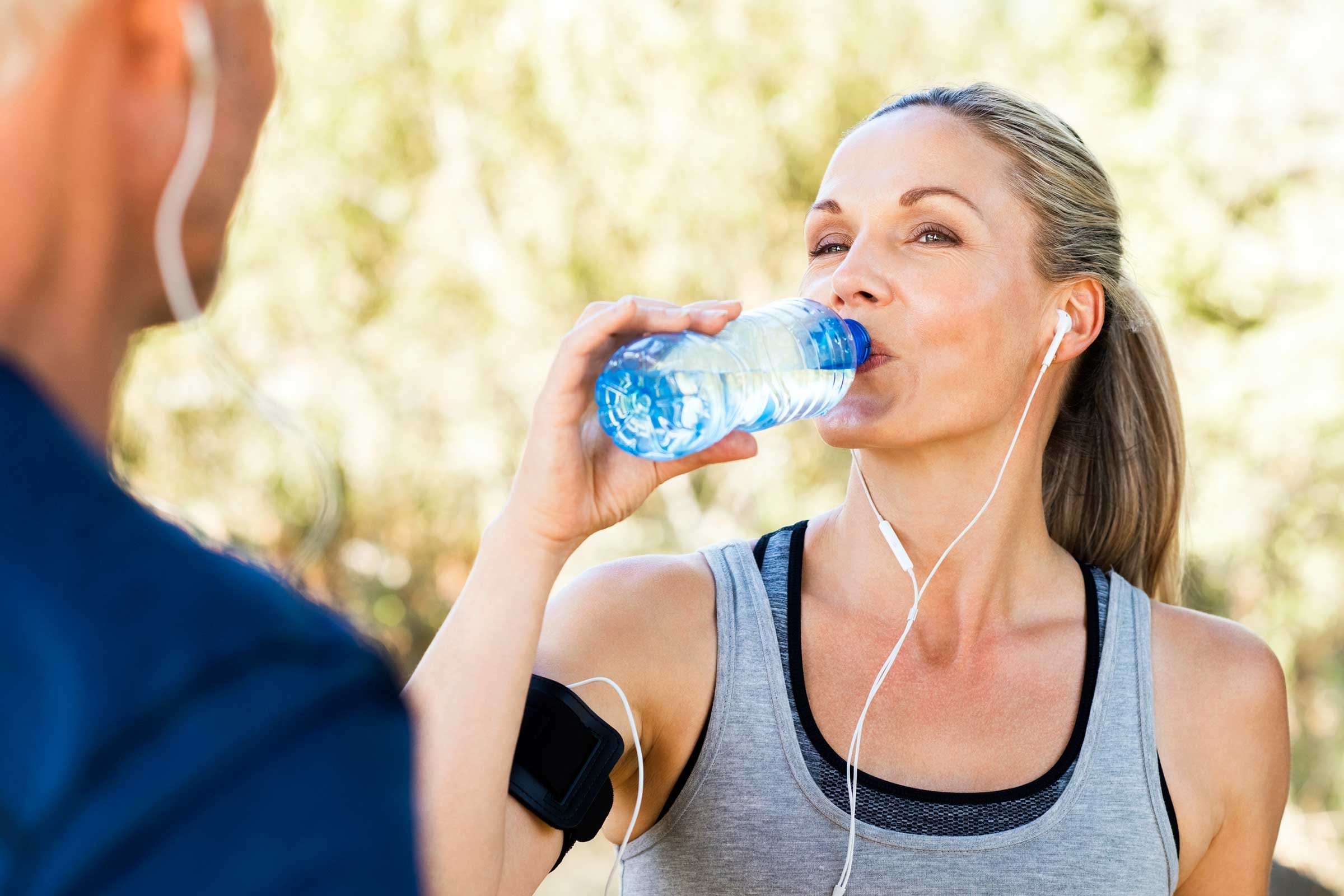
Your skin will glow
When your skin cells aren’t getting the water they need, they’ll start to wither and shrink. But if you drink enough water, your skin will look more lustrous and get plumpness that erases fine lines that form when you’re dehydrated—just don’t expect it to make you look 20 years younger, says Bruning. “Wrinkling is a natural process of aging, and it won’t erase those wrinkles,” she says. “It’s not that miraculous.”
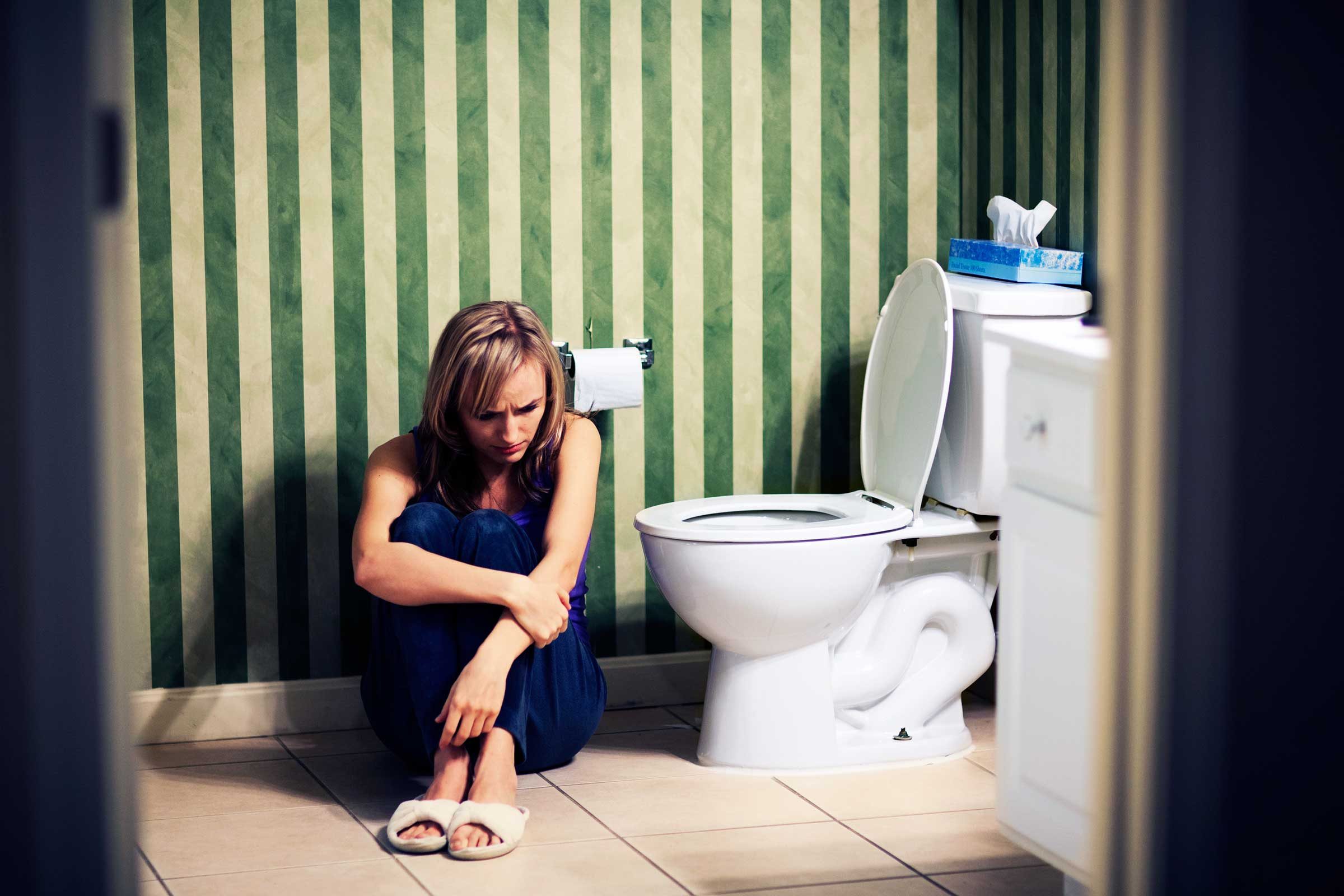
You’ll keep things regular
Every cell in your body requires water, and if your body is lacking hydration in one area, you could find it harder to pass a stool. “When your body needs to have more water in a certain area, it will take out of less essential areas—and that means it will take away from your digestive system,” says Bruning. But by staying hydrated, you can avoid constipation.
(Related: How to Choose the Best Food Habits for Your Health)

You’ll get better at kicking a cold
Another one of the benefits of drinking water is that it can help you heal faster. There’s a reason your doctor tells you to drink more fluids when you’re coming down with something. Your body has to ramp up to launch an attack against the germs when you’re sick, which means your cells need more calories and fluids to keep up with the demands. For instance, you’re losing fluids when your nose starts to run in your body’s attempt to flush out pathogens. “Because you need that strong function to fight off sickness, you need hydration then too,” says Bruning.
(Related: The Best Over-the-Counter Cold and Flu Meds)
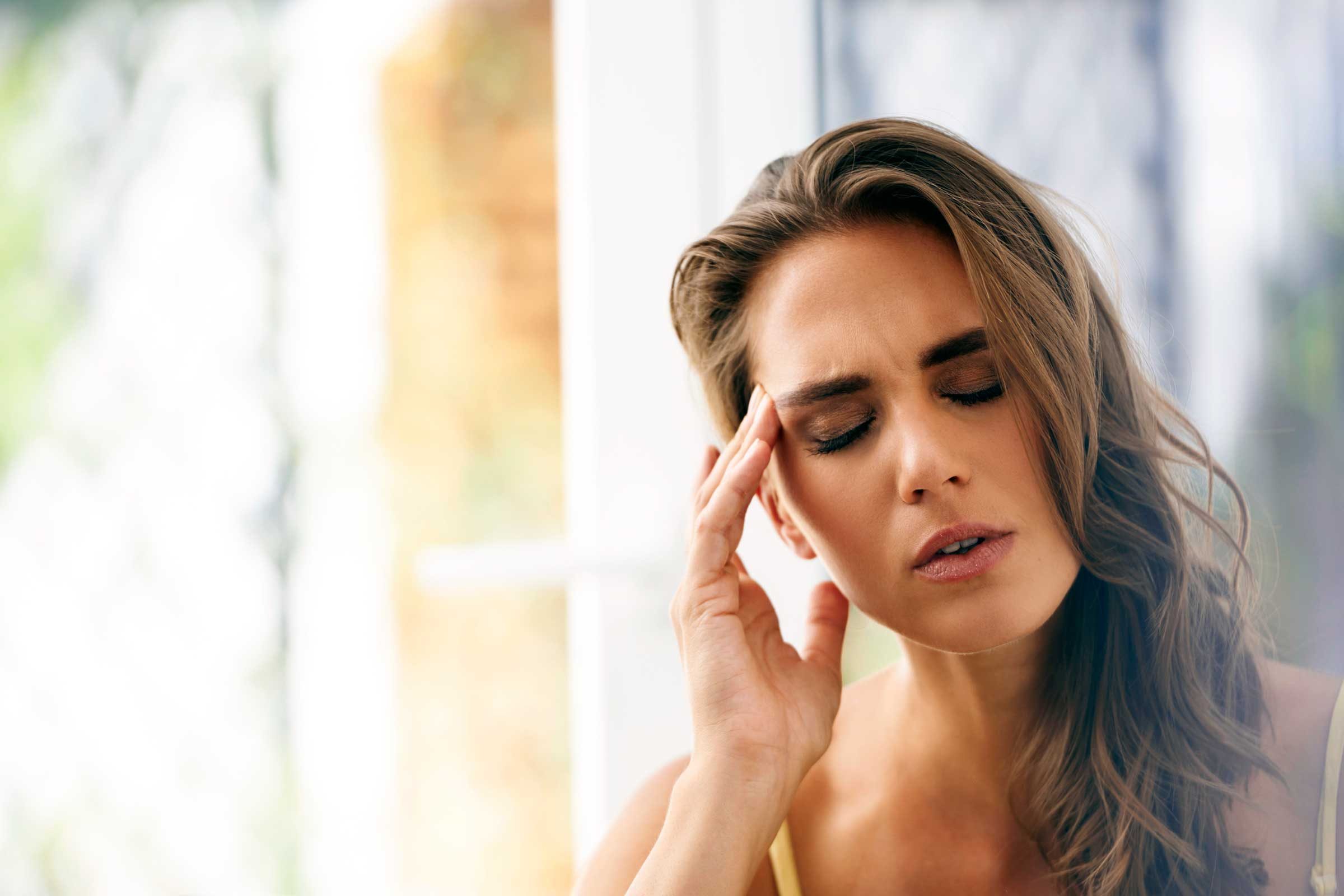
You might get fewer headaches
If you’re prone to headaches and don’t drink enough water every day, good hydration could give you some relief. When your body doesn’t have the fluids it needs, it can’t transfer important nutrients as easily, and a headache is your warning sign. “It’s your body’s way of signaling that something is amiss,” says Bruning. “Your head is saying, ‘I’m dehydrated—this affects me too.’”
(Related: Am I Having a Headache or a Migraine? And More Migraine Questions, Answered)
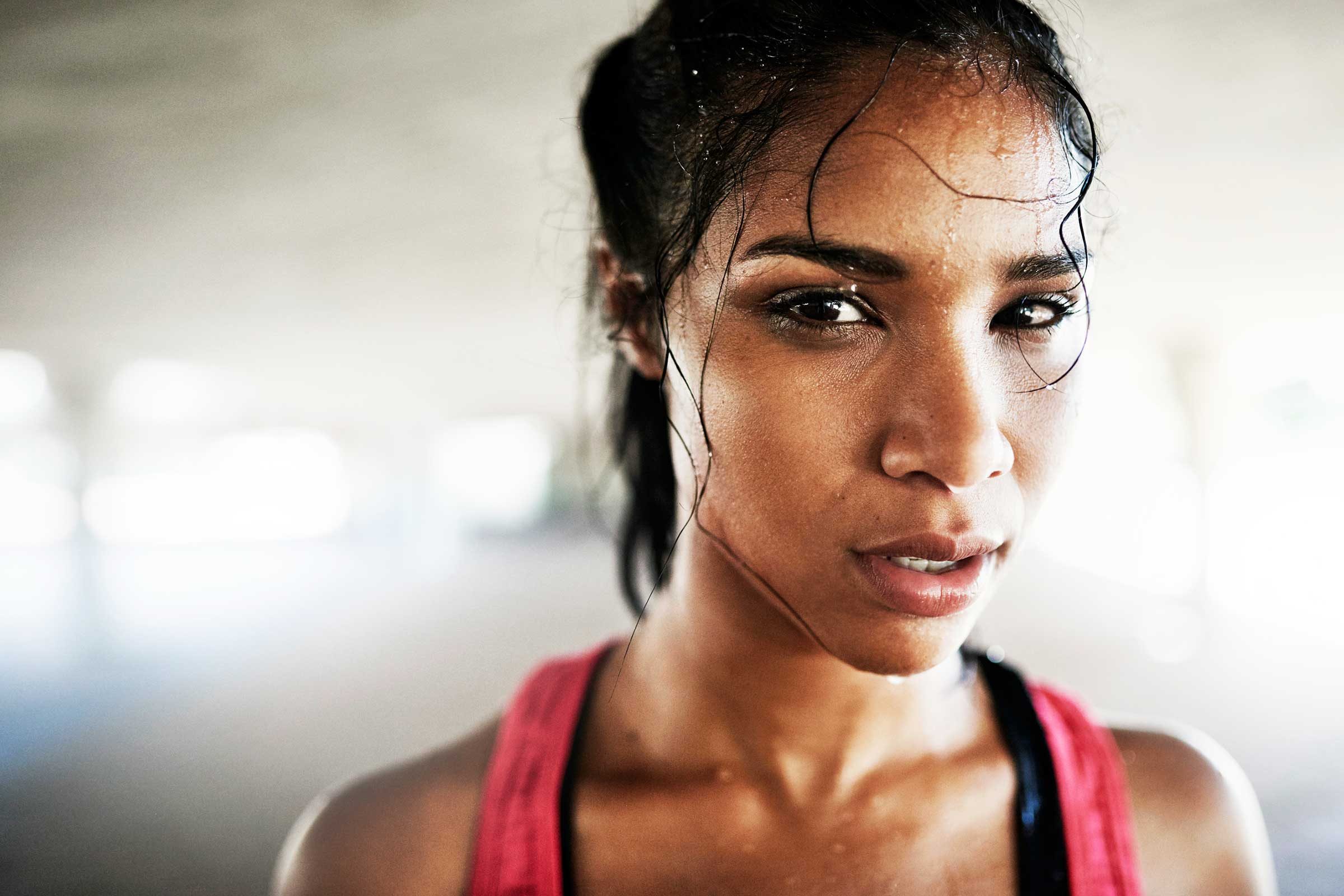
You’ll sweat more
Unpleasant as it feels, a damp forehead during physical activity is actually a good thing—it shows that your body is doing its job of maintaining a normal temperature. But if you haven’t been drinking enough water, you might not create that cooling sweat during an intense workout. “If you’re doing vigorous activity and weren’t sweating when you knew you would be, that’s a sign to seek rehydration,” says Bruning. It could be a red flag for heat stroke or heat exhaustion, so seed medical attention immediately.
(Related: 6 Medical Reasons For Excessive Sweating)

Your heart won’t be so stressed
Like every muscle, your heart needs adequate hydration to function properly. If you aren’t drinking enough water, your ticker can’t pump blood as efficiently, raising your heart rate and decreasing blood pressure. Keeping your heart healthy is one of the most important benefits of drinking water. “If you’re not adequately hydrated, you’re putting additional strain on the heart, and it has to work harder to do its job,” says Bruning.
